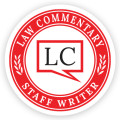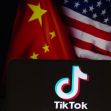A U.S. federal appeals court on Friday upheld a law requiring ByteDance, the Chinese parent company of TikTok, to divest its U.S. operations by January 19, 2024, or face an unprecedented ban on the popular social media app. The ruling is a significant victory for the Justice Department and opponents of the Chinese-owned platform, raising the likelihood of a nationwide ban on TikTok in just six weeks.
The appeals court’s decision centers on bipartisan concerns over national security risks posed by TikTok’s data collection practices and its potential for manipulation by the Chinese government. The three-judge panel, comprising appointees from across the political spectrum, found that ByteDance’s ownership creates a “well-substantiated national security threat” that justified the law.
Attorney General Merrick Garland praised the ruling as "an important step in blocking the Chinese government from weaponizing TikTok." The Justice Department has argued that TikTok’s vast reach among 170 million American users makes it a powerful tool for potential surveillance and influence.
In its opinion, the court noted that TikTok’s ability to manipulate public discourse “is at odds with free speech fundamentals,” adding that such control would be impermissible for a U.S.-based social media company under the First Amendment.
TikTok plans to appeal the decision to the U.S. Supreme Court, with CEO Shou Zi Chew emphasizing the platform’s commitment to free expression. “While today’s news is disappointing, rest assured we will continue the fight to protect free speech on our platform,” Chew wrote in an internal email.
Free speech advocates, including the American Civil Liberties Union, have criticized the ruling, arguing it violates the First Amendment rights of Americans who use TikTok for self-expression and communication. The ACLU called the ban “a blatant overreach that suppresses millions of voices.”
If the Supreme Court upholds the ruling, TikTok’s U.S. ban would take effect on January 19 unless President Biden grants a 90-day extension for ByteDance to divest its U.S. assets. However, significant questions remain about whether ByteDance could finalize a sale in time and whether the Chinese government would approve such a transaction.
The ban would prevent app stores like Apple’s and Google’s from offering TikTok and prohibit internet hosting services from supporting the app, effectively removing it from the U.S. market. Advertisers currently reliant on TikTok’s vast user base would likely shift their focus to competitors like Meta’s Instagram and Google’s YouTube, which saw stock price increases following the ruling.
The ruling affirms sweeping powers for the U.S. government to regulate foreign-owned apps that pose national security concerns, potentially setting the stage for future actions against other platforms. It follows similar, albeit unsuccessful, attempts by the Trump administration in 2020 to ban TikTok and Tencent-owned WeChat.
In a concurring opinion, Judge Sri Srinivasan highlighted TikTok’s unique duality as a platform for free expression and a national security risk. “Because of the platform’s expansive reach, Congress and multiple Presidents determined that divesting it from China’s control is essential,” Srinivasan wrote.
The decision comes amid escalating U.S.-China tensions, including disputes over trade and technology. Beijing has called the law mandating TikTok’s divestment “a blatant act of commercial robbery” and warned that it could harm diplomatic relations between the two nations.
TikTok’s parent company, ByteDance, valued at $268 billion as of late 2023, is backed by prominent investors, including Sequoia Capital and KKR & Co. The forced divestiture threatens to disrupt ByteDance’s global operations and could set a precedent for how the U.S. handles other Chinese tech companies operating in America.
The Supreme Court will likely decide whether to hear TikTok’s appeal in the coming weeks, determining the platform’s immediate fate in the U.S. market. In the meantime, ByteDance faces intense pressure to secure a buyer for TikTok’s U.S. assets, a process complicated by the looming deadline and potential opposition from Beijing.






